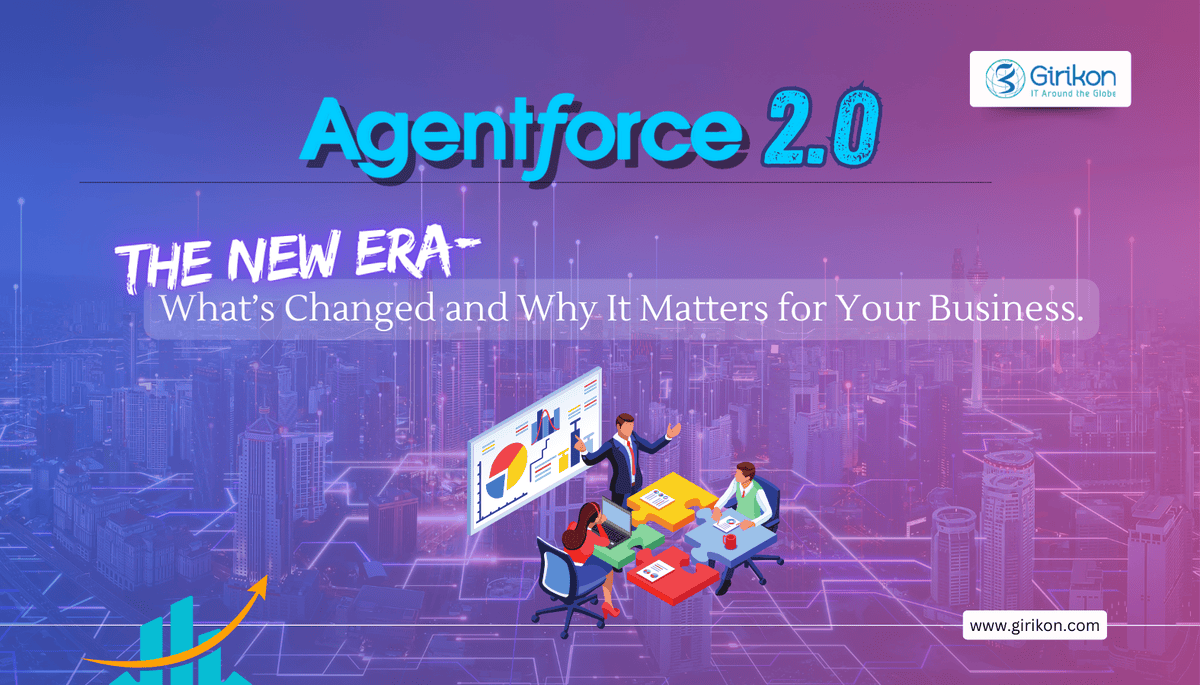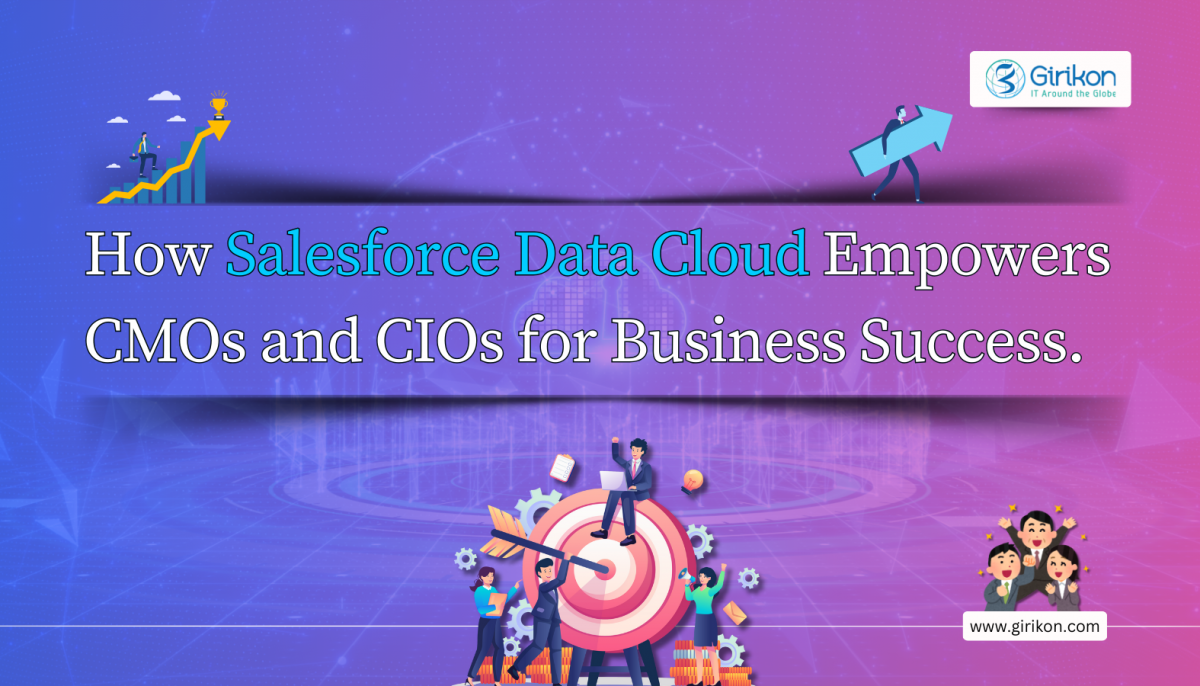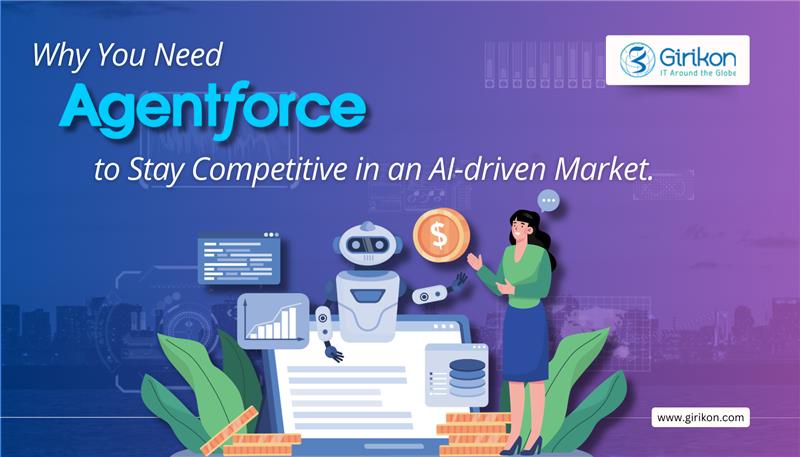Our Blogs
In the rapidly evolving business environment, it is essential for companies to utilize state-of-the-art technology to stay competitive. Nowadays, forward-thinking businesses are incorporating artificial intelligence (AI) into their operations, particularly through the adoption of customer relationship management (CRM) software, to automate and enhance their CRM processes. Salesforce, a leading CRM platform, has consistently been a pioneer in innovation, especially in the realm of artificial intelligence (AI). Notably, Salesforce AI has transformed the way organizations handle their customer service processes.
The integration of Salesforce and AI is more than just an augmentation. It has indeed opened new avenues in Customer Relationship Management (CRM). Rather, it offers a smarter, efficient, and a highly custom-made customer interaction. To know more about Salesforce AI integration, businesses should consider partnering with a reliable Salesforce consulting partner.

Salesforce and Generative AI: A Dynamic Relationship
As a cloud-based platform, Salesforce is highly customizable and configurable and can be leveraged by organizations to meet their unique business needs by tailoring their services. By leveraging tools like Salesforce Flow, users can automate intricate business processes, create agile service experiences, while streamlining data management.
The next phase of transformation will involve incorporating the capabilities of generative AI into a versatile platform using Einstein GPT. This integration holds the potential to transform the way businesses function and engage with their customers
How to Leverage AI to Improve Customer Service?
Listed below are ways how AI can help businesses provide better service to their customers:
- Improved Customization: Utilizing AI will empower businesses to deliver personalized experiences by harnessing customer data and their preferences. This will pave way for tailored recommendations, quick support, and a deeper comprehension of customer requirements.
- Unified Omnichannel Support: AI-driven chatbots can integrate easily with several communication channels such social media, web chat and more. This guarantees uniform interactions across several platforms, offering customers a unified experience.
- Intelligent Automation: AI can be leveraged to automate repetitive and mundane tasks thereby saving a lot of time that can be used up by human agents to focus on more complex and strategic activities. This will boost productivity, quicken response times, and optimize cost for businesses.
- Sustained Learning and Development: AI systems will keep gathering insights from customer interactions, feedback, and real-time data, which in turn will foster continuous improvement. This continuing improvement will yield more precise responses, intelligent recommendations, and enhanced overall performance.
What are the benefits of AI in customer service?
AI in customer service offers several benefits that can improve the overall customer experience and streamline business operations. Some of the crucial advantages include:
- Increased Productivity: Leading IT players believe that AI can be adopted by organizations to serve their customers in a better way. Research conducted reveal that access to AI assistants and tools can increase productivity for support agents significantly.
- Increased Efficiency: Carrying out tasks manually can be burdensome for service agents. This includes tasks such as navigating between different systems to access customer history, searching for relevant informative articles, sending field staffs to service locations, and manually inputting responses. These manual processes are usually prone to errors as they are executed by humans. The integration of AI in customer service can provide intelligent suggestions to service workers drawn from knowledge bases, and customer data.
- A more Personalized Interaction: When a customer interacts with a chatbot, artificial intelligence (AI) has the capability to retrieve vital details, such as the name of customer, location, account type, and language preferred. If the inquiry demands the involvement of a field service technician, AI can promptly convey all relevant information to the technician, allowing them to deliver tailored service as soon as they arrive on-site.
- Less Exhaustion and Enhanced Morale: AI empowers agents to do away with monotonous, time-intensive tasks, enabling them to focus on tasks that demand creative thinking, problem-solving, and intricate critical thinking. These activities significantly impact the overall customer experience. Consequently, it shouldn’t come as surprise that majority of IT leaders anticipate that generative AI will alleviate workload of teams, while reducing burnout.
- Scalability: AI systems can simultaneously handle a huge rush of customer queries making it simpler for businesses to scale their customer service operations without consistently increasing staffing levels.
- A Practical Service Experience: AI has the capability to draw information from contracts of customers, warranties, buying history, and marketing data. This ensures the identification of optimal actions for agents to pursue with customers, even post the conclusion of the service engagement.
The future of AI in Customer Service:
The future AI seems to be quite promising in the customer service industry. In the years to come, artificial intelligence is poised to gain prominence in workplaces given the ongoing advancements in technologies such as machine learning and natural language processing (NLP). Besides handling routine tasks, these AI programs will offer significant insights into consumer behaviors and habits through big data analysis. Organizations can utilize this valuable data to optimize their return on investment in marketing strategies and branding initiatives. As technology evolves, AI is set to play a key role in uplifting customer experiences and boosting operational efficiency.
Final Words:
The fusion of AI and Salesforce is reshaping the CRM terrain, presenting matchless possibilities for organizations to elevate both their customer relationships, as well as their operational efficiencies. This integration when leveraged by businesses enables them to position themselves at the frontline of technological advancement, ensuring they stay competitive and in agreement to the ever-changing needs of their customers. In doing so, organizations can provide value to customers and stakeholders while future-proofing their operations in this quickly evolving digital era. Organizations should consider availing Salesforce implementation services if they wish to make the most of the integration of Salesforce and AI.

 +1-480-382-1320
+1-480-382-1320 +44-7428758945
+44-7428758945 +61-1300-332-888
+61-1300-332-888 +91 9811400594
+91 9811400594


















